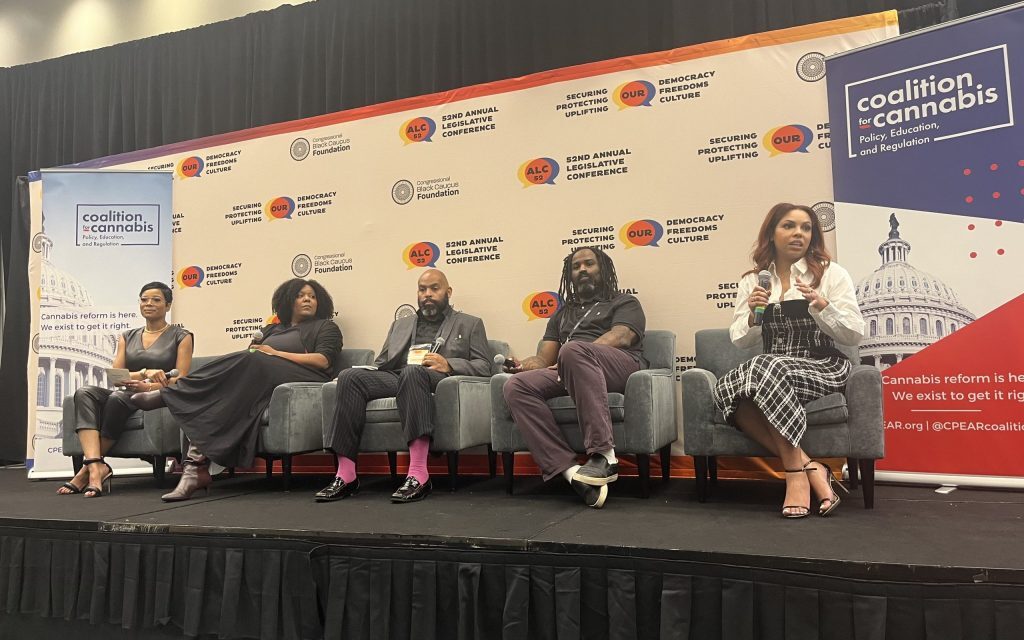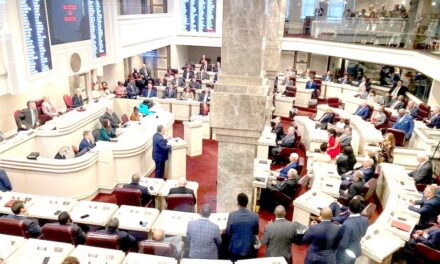By Megan Sayles,
AFRO Business Writer,
msayles@afro.com
The Coalition for Cannabis Policy, Education and Regulation (CPEAR) hosted a discussion on opening up opportunities in cannabis for Black entrepreneurs on Sep. 20. The panel, “Creating the Conditions for Black Business Owners and Leaders to Succeed in the Cannabis Industry,” took place during the Congressional Black Caucus Foundation’s (CBCF) Annual Legislative Caucus (ALC).
At the top of the session, Hope Wiseman, panelist and dispensary owner, touted the success of Maryland’s recent implementation of adult-use cannabis and Governor Wes Moore’s strategy for social equity.
“It’s just been a huge journey watching Maryland evolve from a state that had absolutely no social equity initiatives to being a model program,” said Wiseman, owner of Mary and Main. “I’m happy that the people who come behind me won’t have the same struggles and won’t have to go through the same hoops that I did. It’ll be much easier going forward.”
When medical cannabis dispensaries began operating in 2017, Maryland did not have a social equity program. In fact, during the first round of licenses, none were given to African Americans. Wiseman, who opened her Prince George’s County dispensary in 2018, had to bootstrap her business.
With the legalization of recreational cannabis, Maryland has become the first and only state to earmark the first round of new cannabis licenses for social equity applicants. The state also launched the Cannabis Business Assistance Fund in June to offer startup capital and operational grants to small, minority and women-owned businesses with a focus on those located in areas disproportionately affected by the war on cannabis. .

“In November, the first round of social equity licenses will be coming out. If you live in Maryland, and even if you don’t live in Maryland, you could still technically qualify,” said Wiseman. “If you live in an impacted zone, went to a public school in Maryland or went to one of the four HBCUs or Baltimore college, you qualify as a social equity applicant, and you can apply for licenses in retail, cultivation or processing. You’ll be entered into a lottery. It’s a much easier process than the merit-based applications of the past.”
The panel also discussed New York’s efforts to train young people for pursuing careers in the cannabis industry. Vikiana Clement, former director of the Medgars Evers College (MEC) Cannabis Education Task Force, described her role in creating the first cannabis minor degree program for the City University of New York, the largest public college system in the U.S.
In addition to MEC, 24 other colleges have access to the minor. Clement and her team are now preparing to roll out a cannabis major.
“In the next semester, we’ll be offering the first degree program in cannabis science under the chemistry and environmental science department. This is huge because, prior to this, I couldn’t go and give my students a Tuition Assistance Program (TAP) or Pell Grant to get educated in cannabis science or anything cannabis related,” said Clement. “Now they’ll be able to federally apply for funding. To date, we’ve had 100-plus students, but 100 of them at the end of this semester will have received scholarship funding.”
The degree program will offer four tracks: testing and formulations, health, business and cultivation. Clement said even if students don’t enter the cannabis industry after graduating, the degree will provide them with transferable skills for other high-paying careers.
“In the degree program that we created, you learn all these different things about science, as well as the commercialization of cannabis, but if you don’t want to do this anymore, you’re now a pre-med student,” said Clement. “You fulfilled all of the requirements to apply to medical schools [or] to be a laboratory tester or laboratory conductor, which pay a lot of money.”
Megan Sayles is a Report for America Corps member.
The post Coalition for Cannabis Policy, Education and Regulation hosts forum to prepare and advance Black entrepreneurs in the cannabis industry appeared first on AFRO American Newspapers .











